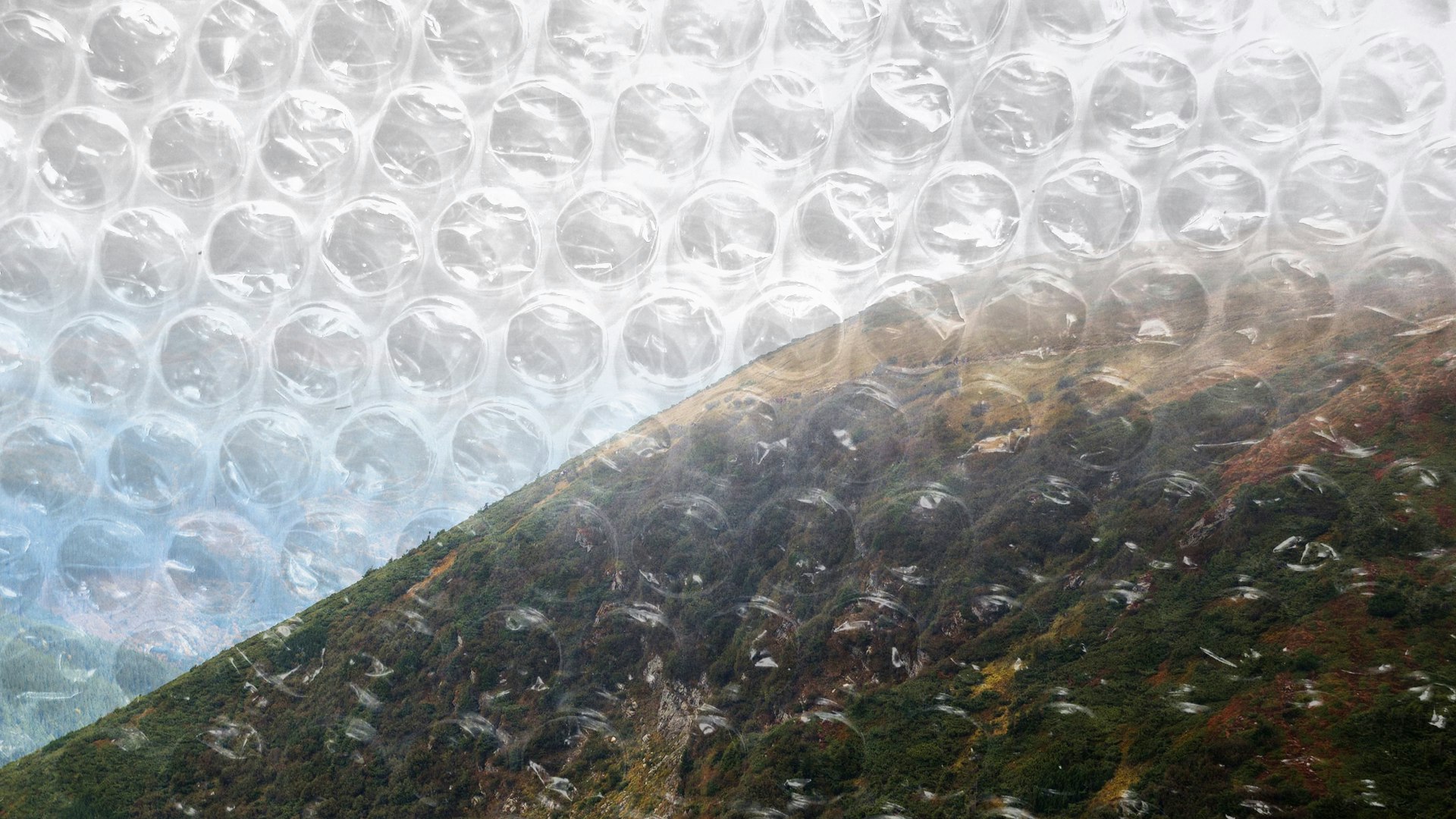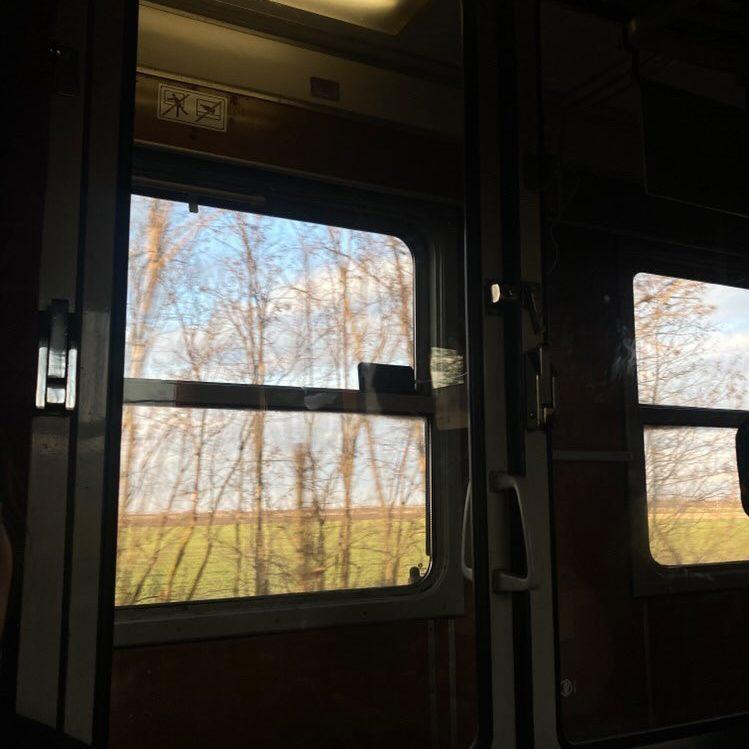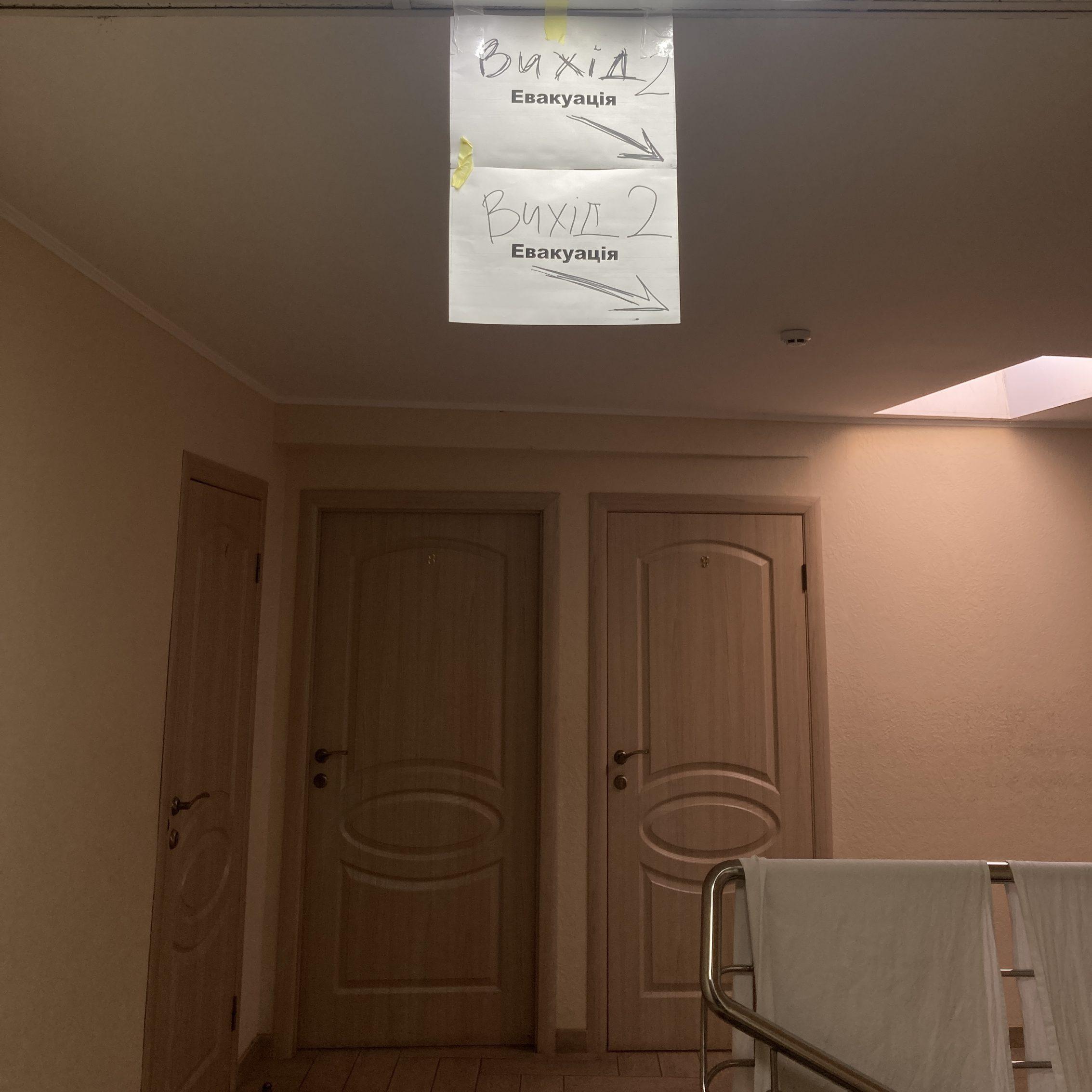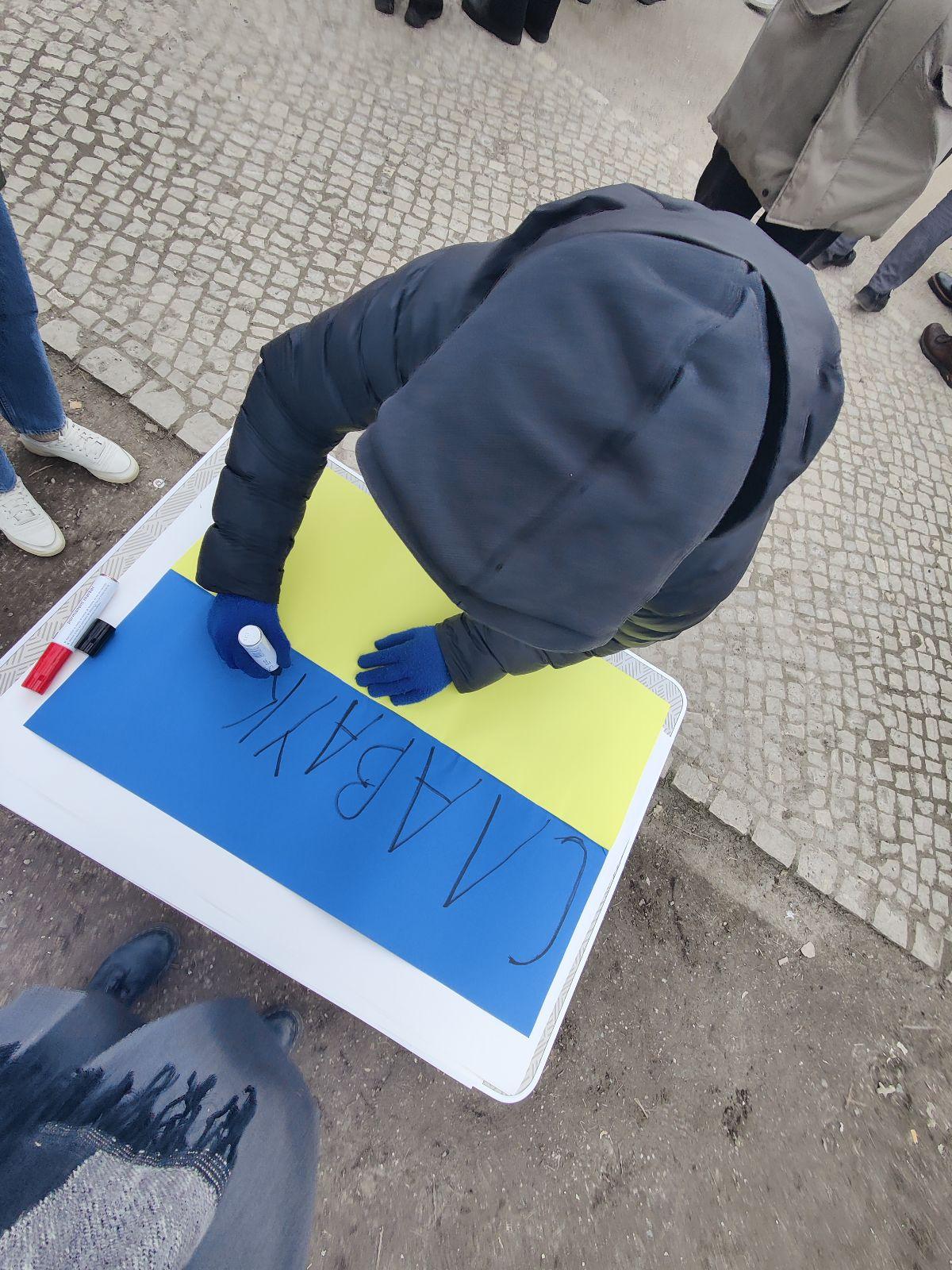“I Want My Life Back In My Hands.”

The correct way to begin a newsletter is to introduce a topic in a way that will captivate the reader. We don’t have that first phrase for you today. Instead, we’d like to show you something: portraits of resilience.
You’ve probably noticed from recent issues that we’ve been turned on our heads. We’ve been knocked around. We’ve been forced to rethink the way we do things. And we’ve been moved to act.
So today we’re bringing you two stories from humans who’ve just made the migration from Ukraine. Their journey, their thoughts, their plans for the future.

Photo: from Uzhgorod to Budapest
I feel weird in the role of a refugee
On the eve of war Liza and her friends are drinking wine. They talk and try on outfits for a party on the weekend. Someone receives a message from a friend whose father works in the Anti-Terrorist Operation Zone. There are airstrikes planned for 4 a.m.
Before bed Liza sets her alarm to pick up a long-term dose of her medication at the hospital, just in case. She’s woken up at 5 a.m. instead when her phone lights up with messages. She ignores them. Later she learns there’s already a traffic jam at the border.
She packs her backpack, takes her credit card, and goes to the hospital. She gets three months worth of medication. She hopes that’s enough. She runs across the bridge and there are fighter jets above her. She feels like she’s in Harry Potter—running through the Millennium bridge when the Death Eaters attacked from the air and destroyed it. Car traffic is crazy. Liza is calm. Chatting with friends she learns about the bomb shelters in the neighborhood.
“The atmosphere was friendly and okay. But then it’s also weird to call being in a bomb shelter ‘okay.’ I guess our brains tend to normalize stuff happening around us so that we don’t collapse.”
She gets groceries. She gets her backpack. She gets a pillow and a blanket. Liza and her friends have planned for this.
She spends 20 hours in the shelter. It’s not a “real” bomb shelter, it’s a drum studio set deep underground. It’s warm, there are rugs, bathrooms, even a shower. There are people with kids, pets, big families. Everyone keeps track of everyone. When people leave they take their number in case they don’t reply again. There is no drinking. They don’t want anyone to start a debauch.
She can’t eat, and won’t be able to for a few days. She plays Cocteau Twins from her phone and sleeps for eight hours.
“Time in there was running like in a casino. It’s a bomb shelter, so no light. No visual orientation, let alone psychological.”
Liza goes home to take a shower and change. She packs more things in her backpack.
- 3 t-shirts
- 1 hoodie
- 2 pairs of jeans
- 1 book by Patti Smith
- 1 video camera
- 1 computer
- 1 facial cleanser
When the air siren breaks out Liza is hiding behind a big column in her bathroom. She’s a producer in an animation studio in Ukraine. Her manager books some stays for her and her colleagues in the west of Ukraine to be safer. Liza chooses Uzhgorod, it’s close to Hungary and Slovakia, and Russia is less likely to bomb it.
“The people who leave feel a big sense of guilt towards the people who stay and volunteer in hot spots.”
All Liza’s female colleagues leave for Europe while the men decide to stay to fight and help. Liza is reluctant to leave Uzhgorod but her boss comes in and says:
—What the heck are you still doing there?
—I need to stay here for the guys. I want to support them by being here.
—Hey guys, is Liza helpful to you here? The fact that she’s still here?
—It’s fun to be here together, but it doesn’t really help us much.
Liza goes to Paris through Budapest. This is easier than going through Poland with all the crowds. Not many people know about this. She is staying with a family of four. The room is beautiful, it’s spring in Paris.

Photo: “Exit and Evacuation”
Liza doesn’t make any plans for the future. Perhaps Crimea in the summer. The thought keeps her warm because her family lives there. They stayed after the occupation of Crimea, but Liza had to leave. It was the first time that she lost her home.
Liza feels immense gratitude but also doesn’t see herself as this person that everyone else is seeing—a refugee, a weak person who needs help. Several days ago she had everything. A home, a job, friends nearby, and party plans for the weekend. And now she’s offered everything from scratch. It’s hard for her to take the help because it brings pain. It’s painful to be reminded of a situation that you were forced into.
“The woman I live with gave me nice French clothes. But when I’m on the street I feel like I’m wearing a costume. It’s not me. I’m playing a role. People don’t even see me as a Ukrainian refugee.”
Liza doesn’t go outside for walks. She doesn’t feel like communicating much. The people around her are nice. She fears that her friends in Ukraine will start dying. For now it’s mostly the acquaintances—friends of friends—but she feels the circle is getting smaller.
“I received an email asking to confirm whether I was joining people at a karaoke. God, karaoke, seriously? It’s way too soon. I can’t go to a goddamn karaoke.”
For New Year’s Liza bought herself a video camera. She asked her friends what they were wishing for 2022. No one talked about war. It wasn’t on people’s minds. Only one person said she wished for Putin to disappear. Liza watches these sequences over and over. It warms her heart. She wants to edit them into a film someday.
—Katia Zoritch
I want my life back in my hands
Before the war broke out, Tanja ran her own pâtisserie and set up a small community of 38 bakers via the messaging service Viber. Now the group uses the chat to notify each other about air sirens. The alarm alert in the group is faster and more accurate than the one provided by the government’s app.
I met Tanja and her two sons, ages 9 and 11, when she had just arrived in Berlin after a days-long journey through Ukraine and Poland. My friend, who lives in the same building as I do, offered them her apartment while she crashes at a friend’s place.
There is a remarkable effort put in to organize arrivals, transportation, food and water, clothes and hygiene products, and psychological consultation. It’s all free, all volunteer-based, all around the clock, and on the back of Telegram chats, Google Sheets, and a tireless sense of purpose and self-efficacy.
Tanja didn’t want to leave Ukraine. Her husband pressed her, “for the children and their future.” He stayed behind. She keeps in touch with her loved ones via chat groups, holding on to what’s left of feeling home and finding moments of light-heartedness with stories from Ukrainian farmers stealing Russian tanks or a Kyiv woman purportedly knocking out a Russian drone with a jar of pickled tomatoes. She bursts into laughter, jumps up to replay the situation, and like many Ukrainian people, echoes President Volodymyr Zelensky when he says: “Laughter is a weapon that is fatal to men of marble.”
At a protest before the Russian embassy, Tanja gives a speech, unannounced. “NATO, close the sky above Ukraine,” she says. People cheer. Her friends in the Viber group say, “Only you would be so brave to pull this off!”

Photo: Tanja’s son writing slava ukraini
I visit Tanja for a coffee and I can sense that she is slowly finding her ground again, despite the unknowingness and displacement—both physically and emotionally—that keep crawling back to her:
What am I going to do by the end of this month?
What am I supposed to do here all day?
“I don’t want to be considered a ‘person who runs.’ I want to go home to my country, and I hope it will be soon.”
I don’t have the courage to say that returning to Ukraine seems very unrealistic and unsafe, so instead I stay quiet and keep listening. And in my heart, I know she knows that too.
Going grocery shopping by herself, taking the subway to visit an acquaintance with the children, overcoming the fear of leaving the safe but captivating space of her four walls, are all small steps that are necessary for her to be... she types in Google Translate: незалежний... independent again.
A neighbor takes Tanja’s children on a daily morning walk with her dog. A Ukrainian grandmother we met at the playground gave her a pair of shoes and a few hours to share comfort and pain. My friends and colleagues donate gift cards for groceries and toys, and help with what will be next.
“I want my life back in my hands.”
I nod. Yes, I understand. And you will.
—Monika Jiang
